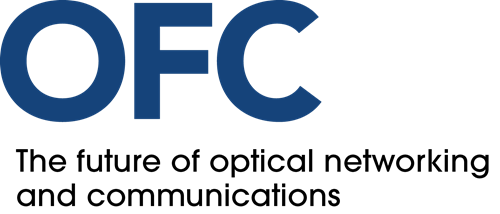SC543 - Deep Reinforcement Learning for Optical Networking
15 Mar 2026
13:00 - 17:00
Short Course Level
Beginner
Short Course Description
In recent years, Reinforcement learning (RL) and Deep Reinforcement Learning (DRL) have gained significant attention due to their ability to handle complex environments, such as those found in optical networks. Unlike traditional algorithms that follow predefined rules (heuristics), DRL methods learn strategies, called policies, that aim to maximize long-term performance. This is achieved by trial and error: the agent explores different actions and learns from the outcomes using a reward function, which assigns value to actions based on how beneficial they are over time. Importantly, these systems are not explicitly programmed to perform specific tasks, instead, they learn optimal behavior through experience. This course explores how DRL can be applied to a wide range of challenges in optical networking, such as traffic management, fault recovery, and energy efficiency. We begin with a survey of recent research that demonstrates how DRL techniques can outperform traditional solutions in this domain. The course then introduces the fundamental concepts of reinforcement learning, including agents, environments, actions, states, policies, value functions, and reward structures. The goal is to provide participants with a clear and accessible foundation in DRL, enabling them to understand current applications, and inspire them to explore how these techniques might benefit their own research problems.
Short Course Benefits
This course will enable participants to:
- Understand the main concepts related to DRL.
- Identify which category of problems can be tackled using DRL.
- Discuss the current state-of-the-art of DRL for optical networking.
- Discuss a proof-of-concept DRL environment for optical networking.
- Test proof-of-concept DRL agents for resource allocation and admission control
- use cases.
- Define, describe, and measure relevant metrics that assess the performance of
- the tested agents.
The participants will gain access to a working prototype for the hands-on part. They will have a guided overview of the code and be able to exercise a few aspects of DRL environments and agents.
Short Course Audience
The course is aimed at professionals from academia or industry without any previous knowledge on machine learning or reinforcement learning. Basic understanding of resource assignment problems in optical networking is recommended but not required. Attendance can also be beneficial for attendees with knowledge on machine learning for optical networking, but who want to extend their knowledge in the specifics of DRL.
-
Carlos Natalino
Chalmers University of Technology, Sweden
Carlos Natalino is a Researcher with the Department of Electrical Engineering, Chalmers University of Technology, Gothenburg Sweden. His research interests include applying machine learning techniques to the design and operation of telecommunication
infrastructures. Carlos has been involved in several national and international research projects funded by European, Swedish, and Brazilian funding bodies. In addition, he has nine years of experience in designing and teaching courses related to computer networks and programming. He is the author of the Optical Networking Gym, an open- source tool to assist on benchmarking resource assignment algorithms. He is a member of Optica and a Senior Member of IEEE. -
Sebastian Troia
Polytechnic of Milan, Italy
Sebastian Troia is a Tenure-Track Assistant Professor with the Department of Electronics, Information and Bioengineering (DEIB) at Politecnico di Milano and a Fulbright research scholar with the University of Texas Dallas (USA). His current research interests are in the field of edge network softwarization and Machine Learning for communication networks. His activity regards the development of intelligent control and orchestration plane architectures for SDN and SD-WAN in multi-layer (optical and IP) network scenarios. He was involved in different European Projects. He serves as Reviewer of several international journals and he is in the Technical Program
Committee of international conferences and workshops. He is co-organizer of the 4th Edge Network Softwarization workshop co-located at NetSoft conference 2025.
